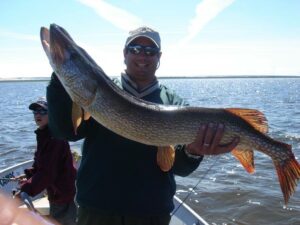Exploring Fishing in Colorado: Navigating License Requirements for Anglers


Introduction:
Fishing in Colorado diverse landscapes and pristine waterways attract fishing enthusiasts worldwide. However, before embarking on your angling adventure in the Centennial State, it’s essential to understand the fishing license requirements. This article will guide you through Colorado’s fishing regulations, helping you determine whether you need a fishing license and ensuring compliance with the state’s rules.
Understanding Colorado’s Fishing Regulations:
Colorado’s fishing regulations are designed to protect fish populations, preserve aquatic ecosystems, and promote responsible angling practices. Adhering to these regulations helps maintain the natural balance of Colorado’s waters and ensures sustainable fishing opportunities for everyone to enjoy.
Fishing License Requirements:
In Colorado, anyone aged 16 years or older must have a valid fishing license to fish in public waters legally. This requirement applies to both residents and non-residents. Fishing licenses grant individuals access to the state’s rivers, lakes, reservoirs, and streams.
Types of Fishing Licenses:
Colorado offers several fishing licenses to cater to different fishing needs and durations. These include:
Annual Fishing License: This license is valid for one year from purchase, allowing unlimited fishing opportunities throughout the year.
One-Day Fishing License: Designed for occasional or short-term anglers, this license grants fishing privileges for a single day.
Five-Day Fishing License: Perfect for visitors planning a fishing trip lasting up to five consecutive days, this license provides access to Colorado’s waters.
Senior Fishing License: Colorado residents aged 65 and older can obtain a discounted fishing license, enabling them to enjoy the states fishing resources at a reduced cost.
Exemptions and Special Cases:
While most individuals require a fishing license, Colorado has exemptions and special cases. These include:
Free Fishing Days: Colorado designates specific days as free fishing days, during which fishing licenses are not required. It allows both residents and non-residents to experience fishing without purchasing a license. However, all other fishing regulations and restrictions still apply.
Youth Exemption: Children under 16 are not required to possess a fishing license in Colorado. It encourages young anglers to develop an appreciation for fishing and the state’s natural resources.
Disabled Veterans: Colorado provides free fishing licenses to residents who are disabled veterans with a 60% or higher disability rating from the U.S. Department of Veterans Affairs.
Penalties for Fishing Without a License:
Fishing without a valid license in Colorado is a violation of the law. Violators may face penalties, fines, or even the suspension of fishing privileges. Obtaining the appropriate fishing license is crucial to ensure a legal and responsible fishing experience.
Conclusion:
Colorado’s picturesque waterways offer exceptional fishing opportunities, but it’s essential to understand and comply with the state’s fishing license requirements. Whether you’re a resident or a visitor, obtaining a fishing license is generally necessary if you’re 16 or older. Exceptions such as free fishing days and exemptions for children and disabled veterans exist, but it’s vital to familiarize yourself with the specific regulations to ensure compliance. By respecting these rules, you can enjoy the wonders of fishing in Colorado’s pristine waters while contributing to the conservation and sustainability of its fish populations for generations to come.

